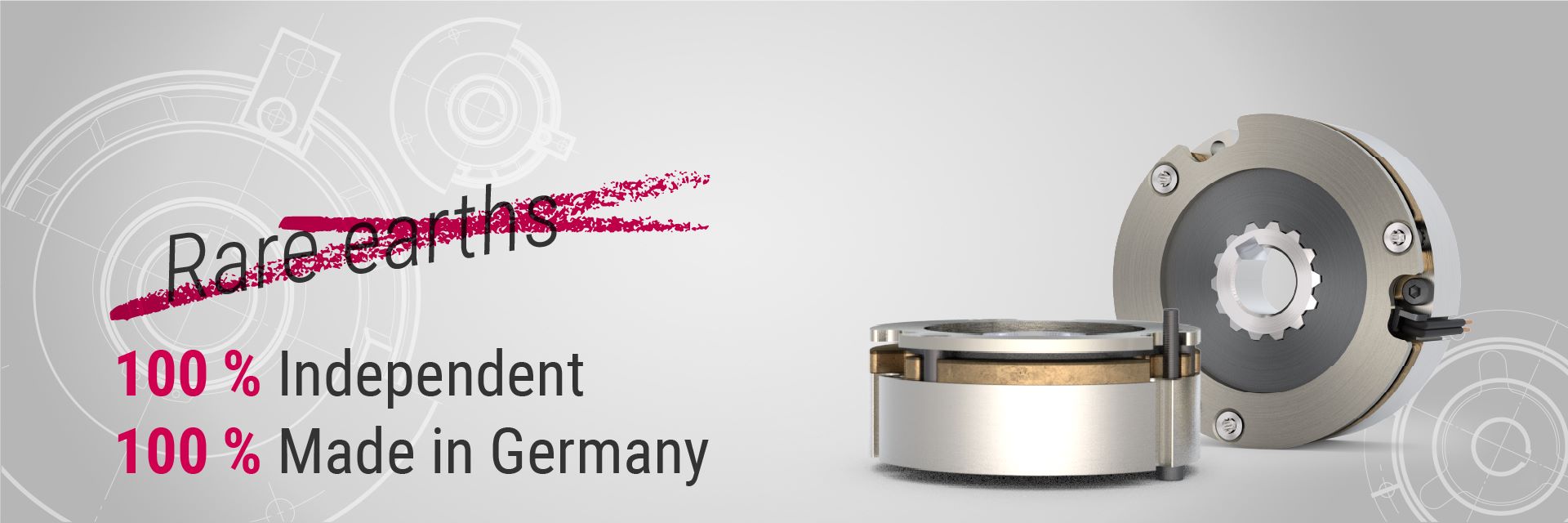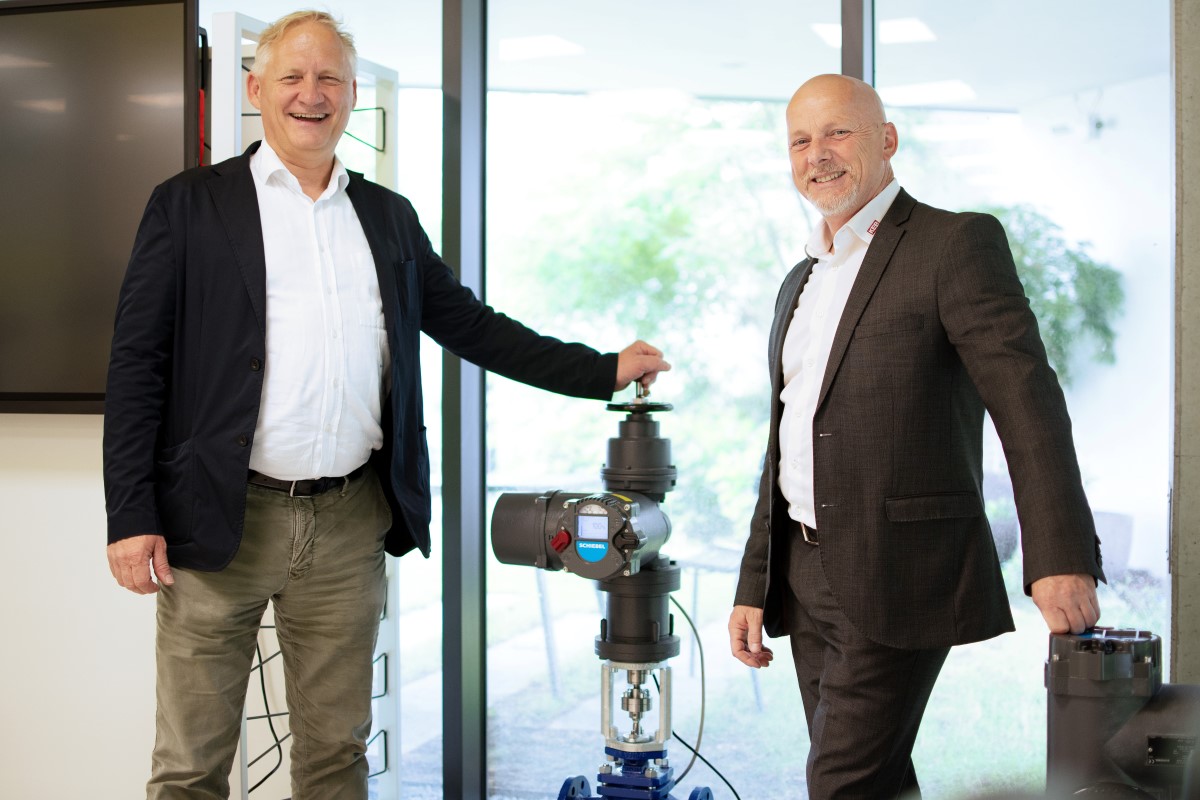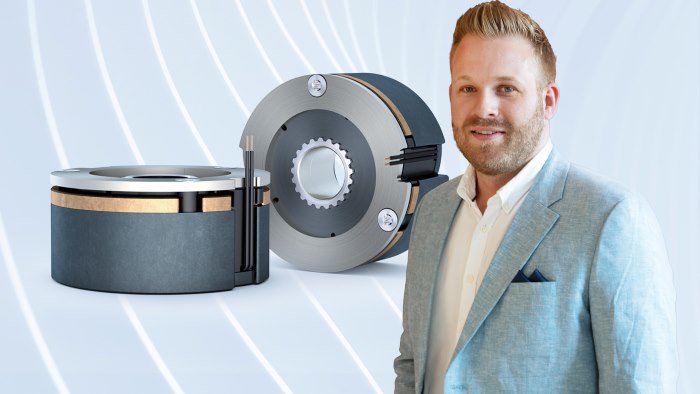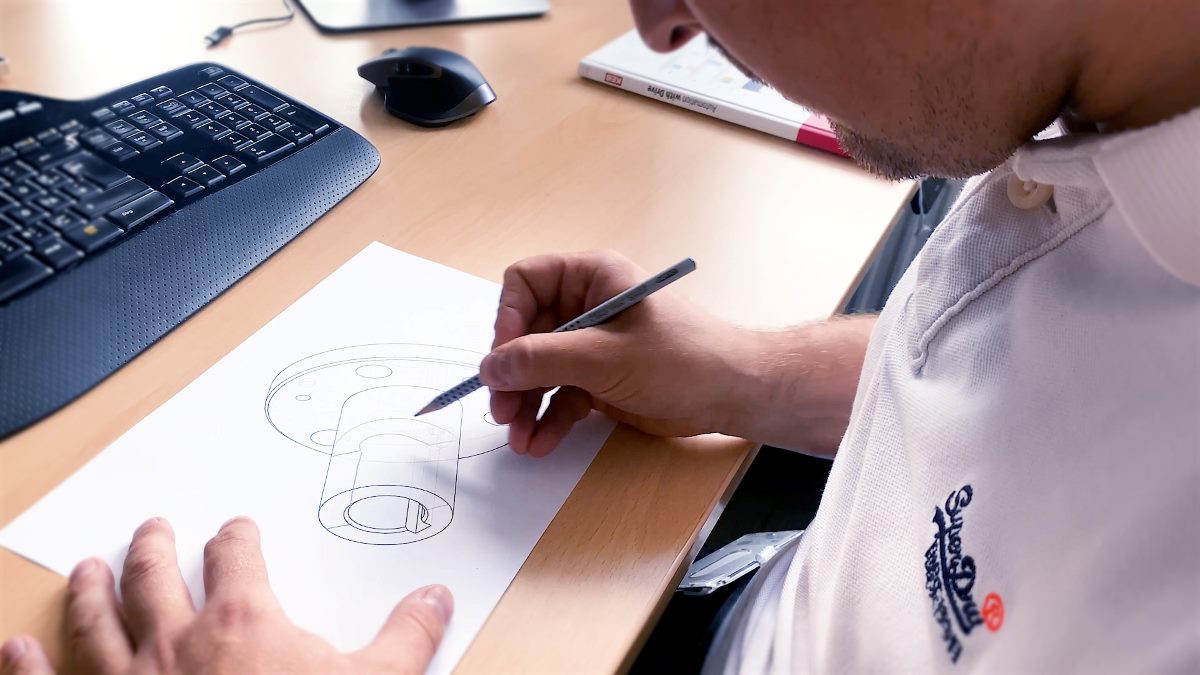Brakes without rare earths: KEB offers these alternatives
Secure supply chains with Made in Germany
Are there brakes that do not require rare earths? How can you ensure the availability of brakes even under changing conditions? Against the backdrop of global supply chains and changing export regulations, the question is increasingly being asked: What alternatives are available? They are called neodymium, samarium or dysprosium and are often found in brakes: rare earths. Due to their magnetic properties, they are used in permanent magnet brakes. One of the most common materials in this area is the neodymium-iron-boron alloy.
On this page, we show you how KEB Automation can help you become independent of rare earths and how, for example, our new patented friction lining system can provide a solution. With a high level of vertical integration and products that are “Made in Germany”, you are well set up for the future.

Kevin Zysk
Head of Sales Brakes & Clutches
What alternatives to rare earths does KEB Automation offer?
With a view to optimum planning and delivery times, brakes that are completely independent of materials such as rare earths are particularly interesting in light of current export regulations. KEB therefore offers an alternative to permanent magnet brakes with a new patented friction lining system that does not require permanent magnets. The high-performance COMBISTOP S1 holding brake, for example, features this friction lining system and will certainly remain an interesting option in the future when maximum material independence is required. A major advantage of the S1 is that it is a spring-applied brake that does not require any magnetic materials and yet offers comparable performance to a permanent magnet brake in the same installation space. In addition, the COMBISTOP S1 reduces fine dust emissions to almost zero.
What restrictions currently apply to brakes with rare earths?
KEB relies on a very high level of vertical integration in its brake production, but individual materials such as rare earths are imported from third countries. Changing geopolitical conditions are also changing access to rare earths. For example, there are stricter export controls that affect the availability of materials and result in longer delivery times. To enable KEB customers to plan as effectively as possible under these conditions, it is advantageous to inform KEB as early as possible of any planned requirements for brakes containing rare earths. KEB also advises users on the selection of suitable alternative brakes, which are generally available with shorter delivery times.
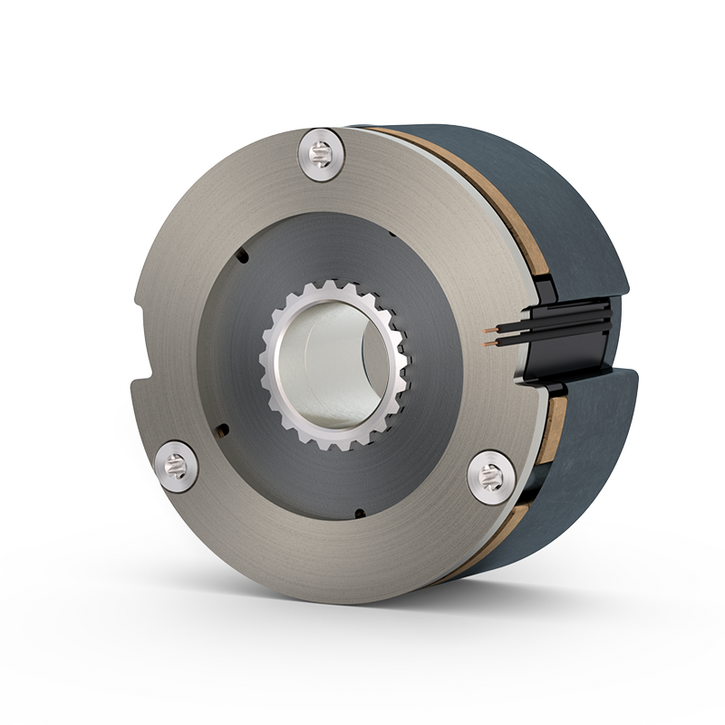
What exactly is the friction lining system and how does it work?
A friction lining system is a mechanical system used to safely hold the movement of a motor. It uses the friction between two surfaces to convert kinetic energy into heat, thereby stopping or slowing down the movement. KEB offers a friction lining system that is 100 percent made in Germany. It was developed and manufactured in Barntrup and is a patented solution specifically designed for use in servo motors. However, the friction lining system is also used in driverless transport systems (AGVs) and in robotics as a customised variant. The performance of the friction lining in the spring-applied brake corresponds to that of a permanent magnet brake. The patented system is integrated into the COMBISTOP S1. KEB has received the seal of approval from the Research Allowance Certification Agency (BSFZ) for the development of this temperature- and friction-stable spring-applied brake, which certifies the innovative competence of companies.
What is behind “100 percent Made in Germany”?
Spring-applied brakes, permanent magnet brakes and clutches, or working current-operated clutches and brakes: they are all available in customer-specific designs. This is made possible by the fact that over 90 percent of brakes and clutches at KEB can be manufactured in-house.
Thanks to this high level of vertical integration, KEB has access to every step of the manufacturing process and can make changes or adjustments quickly and easily. This ensures that the result meets the customer's wishes and technical requirements in the long term. The ‘100 percent Made in Germany’ approach refers to KEB brakes, which do not contain any rare earths or other materials imported from countries outside Europe. Delivery conditions that are not subject to current export controls or similar regulations make planning easier for customers.
Are ferrite magnets an alternative to rare earths?
Due to the limited availability of rare earths, the question of alternative materials such as ferrite magnets arises. In general, these are conceivable in certain applications and can replace neodymium or samarium cobalt, for example. However, there are some limitations in practice. Although ferrite magnets tend to be cheaper and more readily available, they have lower magnetic energy and are brittle and mechanically sensitive due to their nature. In addition, they require more installation space for the same magnetic force. This is an argument against the use of ferrite magnets, as compact design is particularly important in plant and machine construction and there are also high demands for precise control. Against this background, compact holding brakes with the performance of permanent magnet brakes (COMBISTOP S1) are recommended as an alternative to rare earths.
Would you like to become independent of rare earths? Here's how:
In many cases, switching to brakes without rare earths is possible without any problems – and KEB will support you in finding the right solution. Our motto is: “Individuality is our standard”. Our experts in the field of brakes and clutches are your first point of contact and look forward to receiving your enquiry.
